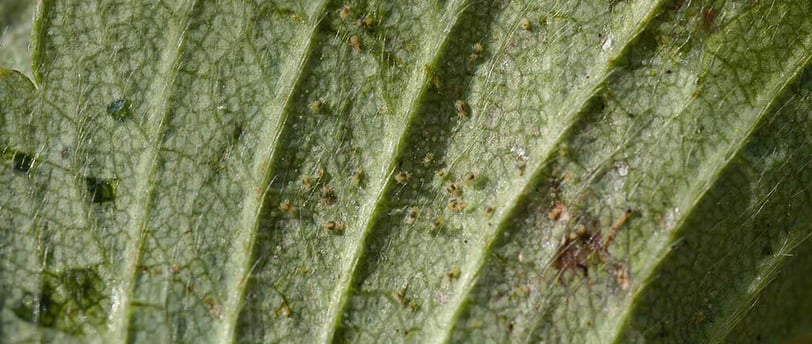Spider Mites on Herbs and Garden Plants: Spot Them Early and Eliminate Them Fast
Spider mites can destroy plants fast. Learn how to identify and eliminate them naturally with easy methods and effective prevention tips.
PESTS & PROBLEMS


Your plants look dusty, weak, and their leaves have tiny yellow dots. Look closer—if you see fine webbing and minuscule red or brown moving dots, it’s a sign you’ve got spider mites. These sap-sucking pests thrive in hot, dry conditions and can kill plants quickly if left unchecked.
Let’s break down how to stop them before they spread.
What Are Spider Mites?
Spider mites are tiny arachnids, not insects, that feed on plant sap. They are often invisible without a magnifying glass, but their damage is obvious.
They spin silky webbing under and between leaves as they feed and reproduce.
Plants they commonly infest:
Basil
Tomatoes
Strawberries
Rosemary
Beans
Indoor ornamentals
Signs of Spider Mite Infestation
Tiny yellow or white speckles (stippling) on leaves
Leaves curling or turning bronze
Fine webbing on the undersides of leaves
Leaves drying out or falling off
Very small moving dots—red, yellow, or greenish mites
How to Get Rid of Spider Mites
Isolate the Plant Immediately
Prevent spread to nearby herbs or vegetables.Blast with Water
Use strong water pressure to dislodge mites from leaves and webs.Spray Neem Oil or Insecticidal Soap
Apply thoroughly every 3 days for 2–3 weeks. Don’t forget leaf undersides.Introduce Predatory Mites
Natural enemies like Phytoseiulus persimilis will eat spider mites fast.Trim Severely Affected Areas
Remove badly damaged leaves or stems and dispose of them far away.
Preventive Measures
Keep humidity higher—mites hate moisture
Regularly mist or hose down plants (especially in dry heat)
Avoid over-fertilizing—lush, tender growth attracts them
Inspect new plants carefully before placing them near others
